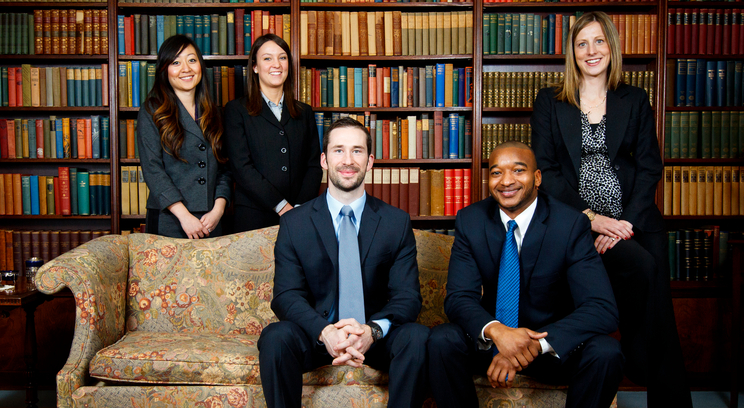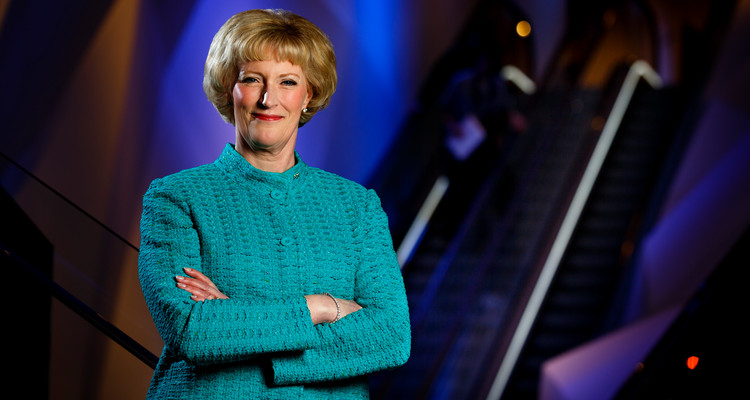For many college students, at both the undergraduate and graduate level, an internship provides an opportunity to apply classroom learning in the field, to deepen nascent skills and to develop the tools to succeed in a collaborative work environment. Each year, however, thanks to the Mayo Innovation Scholars Program (MISP), a select group of Minnesota students has the chance to participate in an extraordinary internship that places it at the intersection of science, business, medicine and ethics for five months of one academic year.
The innovator behind the program is its director, John Meslow, retired corporate senior vice president and president of Neurological Business of Medtronic Inc. According to Meslow, the purpose of the program is to “assist Mayo in the assessment of new product submissions by Mayo researchers, provide research opportunities for undergraduate science and business students, and provide leadership development and research opportunities for graduate students.”
Now in its eighth year, the program gives students the opportunity to explore research proposals submitted by the Mayo Clinic, including Mayo Clinic Ventures, the College of Medicine, and the Center for Innovation and Global Business Solutions. Projects range widely from the highly technical to those that are more marketing and customer experience based. Students selected for the experience are expected to research the technical aspects of the project, develop a SWOT analysis, recommend go/no-go scenarios and provide a business development and marketing plan to bring the idea to fruition. In addition to understanding the technical aspects of science and medicine, topics in the fields of intellectual property and business ethics surface when developing the market strategy.

The Mayo Clinic's Gonda Building. (Photo by Mike Ekern '02)
The Mayo Clinic Ventures office receives more than one idea per business day from Mayo inventors, making the full development of these ideas a challenge. This is where the Mayo Innovation Scholars come in.
In 2013, 10 undergraduate private institutions, including the University of St. Thomas, participated in 12 projects through MISP. Undergraduate teams were made up of two science students and two business students. Five of the 12 teams were led by then second-year UST MBA students, including Samantha Majkowski, Daniel Kolar, Karen Satterlie, Abbey Pieper and Boubakar Jalloh. Team leaders are responsible for overseeing the undergraduate teams, which includes ensuring the delivery of the project requirements, setting milestone goals, providing technical assistance, communicating with all stakeholders, and assisting with the final paper and presentation delivery.
“My team was given a highly technical project that required a strong understanding of a neurological disorder,” said Majkowski '13 M.B.A. "The undergraduates were instrumental in defining the project scope and understanding the technical aspects of the project. From a leadership standpoint, I was constantly adapting to meet the needs of the undergraduate students. This was a truly remarkable experience, as I was able to grow as a leader and was exposed to the incredible innovation and unmatched talent present at the Mayo Clinic."
A True Test of Leadership
Students selected for the program received their projects in October 2012 and presented to their Mayo clients in March 2013. Undergraduate faculty in science and business from the participating universities also were assigned to provide technical guidance to the teams. The faculty members are critical stakeholders with whom the MBA team leaders must collaborate. Steve Vuolo, clinical instructor in the Marketing Department of the Opus College of Business, is the faculty adviser of the UST MBAs. He is responsible for selecting the participants and coaching the MBA team leaders throughout the project. “There is no cookie cutter approach to these projects,” he said. “Each project is so unique that it truly tests the leadership of our MBA students. It provides our students with an opportunity to apply leadership, project management, marketing and business ethics principles that they are learning in the classroom to real business decisions.”
Only about half of the MBA students who participate are interested in the medical field as a career pursuit, and undergraduate team members have science or business backgrounds. Mayo intentionally does not provide much guidance and, as a result, the MBA team leaders need to guide the teams through a fair amount of ambiguity, which is truly a test for their leadership skills. Other skills honed throughout the experience include collaboration with numerous stakeholders, project management, presentation and communication – both verbal and written – and general leadership skills.
Daniel Kolar ’13 M.B.A. was another member of the UST group. “The most challenging, yet most rewarding, aspect of the MISP was the diversity of the projects as well as the diversity of the expertise involved,” he said. “My team came from a variety of fields: pre-dentistry, accounting, programming and linguistics. The project had to do with technology and teaching pedagogy. Like most things in life, it did not come with an instruction manual and we had to become experts really quickly in order to succeed.
“Within 20 weeks, we had a granular understanding of our project and we were able to give very strong recommendations that both the project manager and inventor found very helpful and insightful,” he continued. “It was a real challenge to go from knowing nothing about the project to 20 weeks later giving recommendations to the inventors on next steps. It was the greatest challenge that turned into the biggest benefit.”
Read more from B. Magazine.







